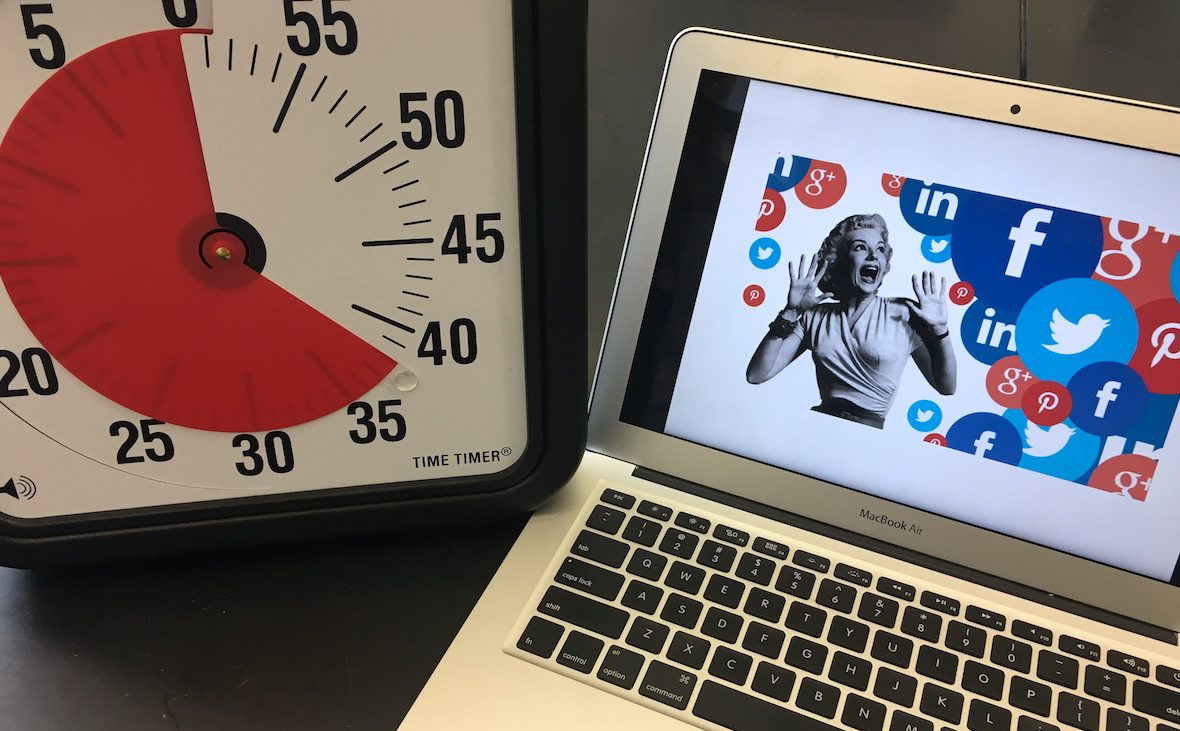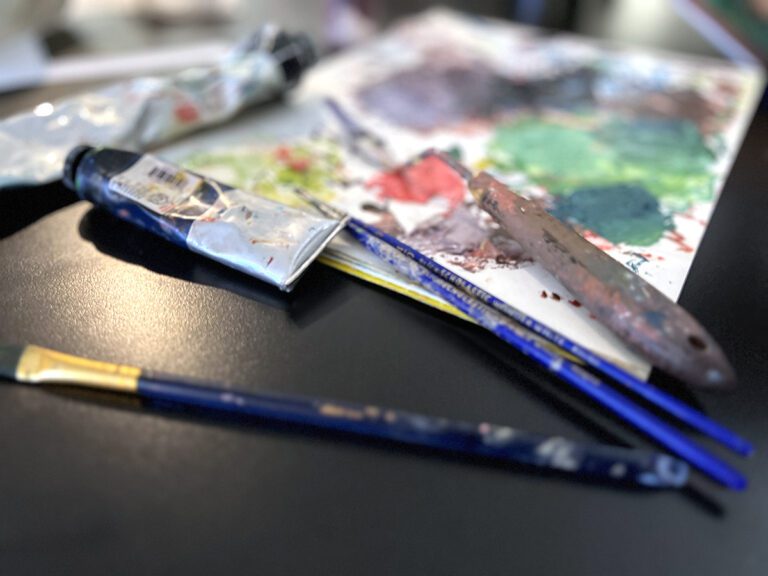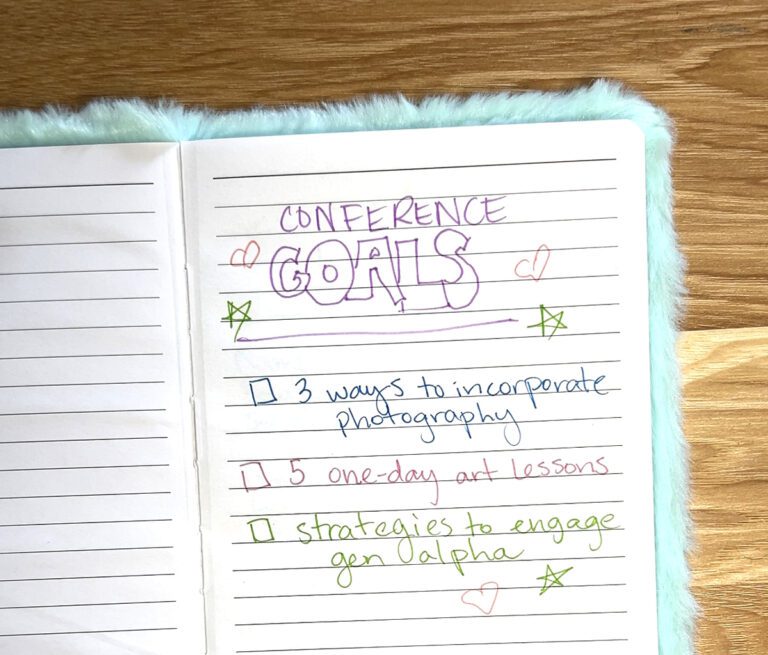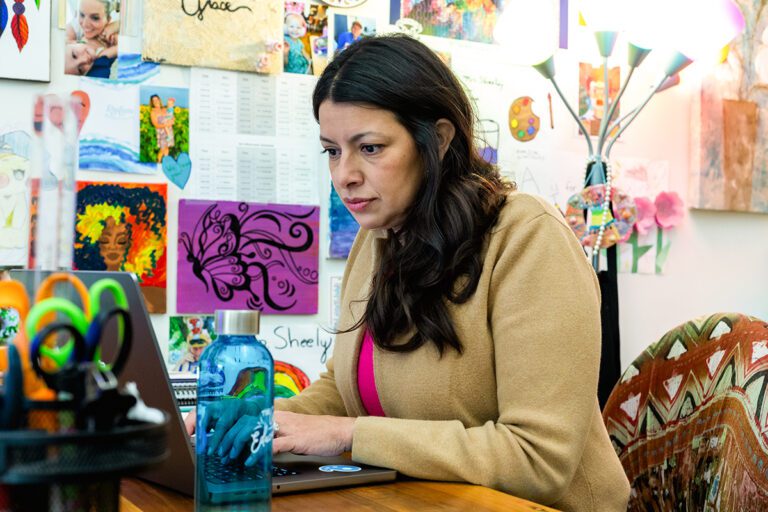Professional social media has recently exploded in popularity. From Art Teacher Facebook groups and #TwitterChats to classroom Instagram accounts and Pinterest boards, it seems online platforms are taking over our professional lives.
Although social media can be beneficial, it can have some surprisingly negative effects on your classroom performance.
The next time you decide to browse social media for some new ideas, make a post, or see what other teachers are doing, here are 4 things to consider.
1. Privacy
Social media is a great place to share your successes and concerns with other art teachers. It’s also a great place to get honest feedback from your peers. Unfortunately, even when social media accounts are private, your posts are easy to find and difficult to erase. This means parents, students, or administrators could potentially see what you say online.
The next time you decide to comment on social media sites, take a moment to ask yourself some questions:
- How private is this group?
- If a parent or student saw this, how would I feel?
- Could this affect how my principal or colleagues feel about me?
Even if you’re posting in “closed” groups (meaning only members can see what you post), it’s a good idea to think about these things. Make only comments you would feel comfortable having people you know in real life see.
2. Time
There are not enough hours in the day to complete the job of an art teacher. Taking time to browse professional social media during prep time may give you a false sense of productivity. It’s easy to waste hours of precious time and leave with nothing.
The next time you log onto a social media site to look for art teacher ideas set a timer for how much time you’re willing to give. You may even want to check out apps that can help you time your social media usage or keep yourself on task. 30/30 is a great app to schedule time intervals for certain tasks during your prep or before school hours.
If you find you often burn your prep time or after school hours on social media sites, it may be time to take a look at kicking this habit for good.
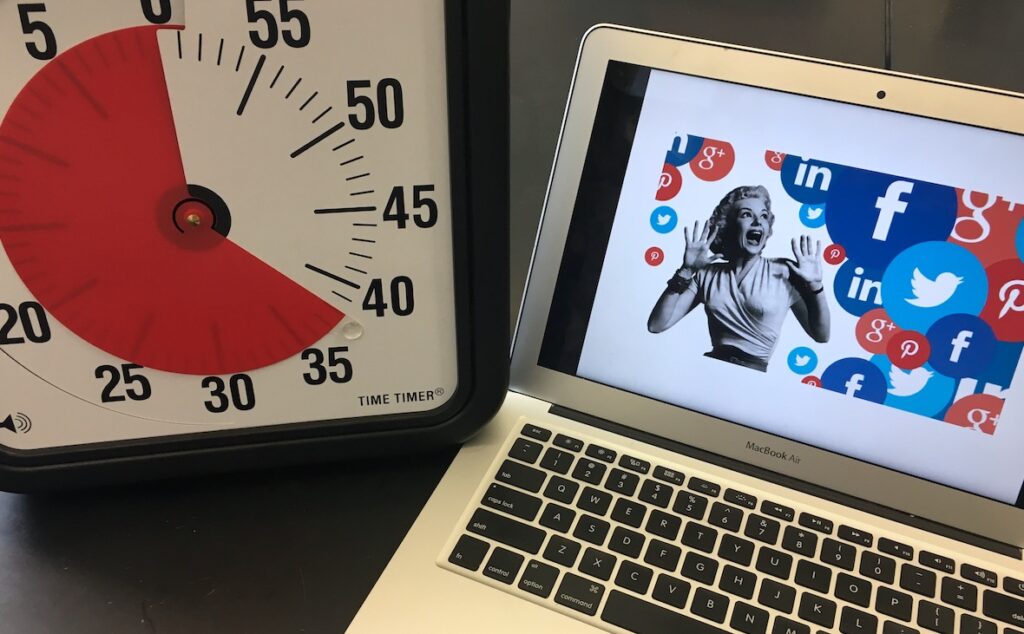
3. Mental Health
Like a drug, social media is addictive. Watch out for negative effects social media may be having on your mental heath. These include increased anxiety around your job or feelings of inadequacy compared to other teachers.
The next time you log onto professional social media sites, pay attention to your reaction. Negative thinking patterns, increased feelings of stress, and feeling overwhelmed by ideas are all good reasons to log off and take a break.
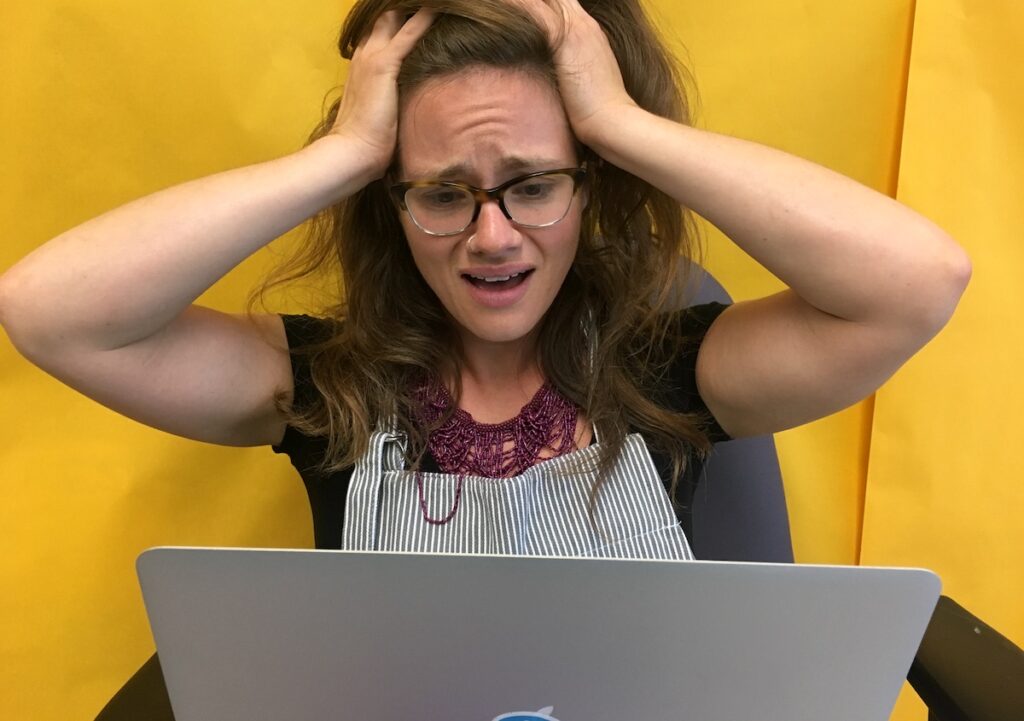
4. Sleep
Staring at a device before bed could be causing you to lose sleep. Bright lights and information overload can interrupt your sleep cycle. It can also reduce the quality of your sleep.
If you hit up professional social media sites before bed, it’s time to change your ways. Instead, try some new books about art or education, work in your sketchbook, or relax with a five-minute meditation.
Not only will this help you to get more sleep, but it will also make you a more present, well-rested educator.
Using social media to supplement your professional learning community has its benefits as long as you use it properly. Take some time to notice how your social media habits are affecting your life inside and outside the classroom. Take a break or cut back if you need to. Your body and brain will thank you!
Do you find social media affects you negatively?
Would you ever give up or take a break from professional social media networks?
Magazine articles and podcasts are opinions of professional education contributors and do not necessarily represent the position of the Art of Education University (AOEU) or its academic offerings. Contributors use terms in the way they are most often talked about in the scope of their educational experiences.
